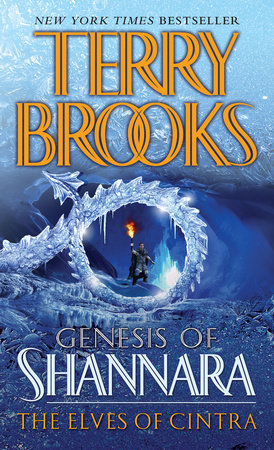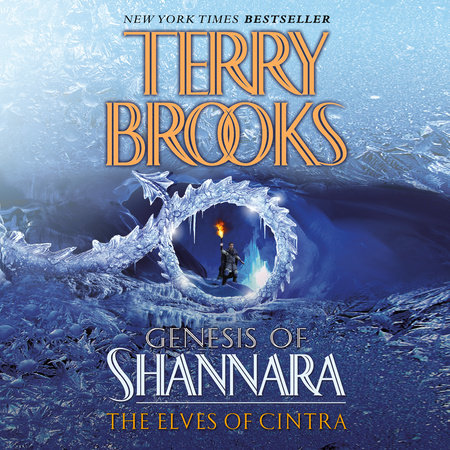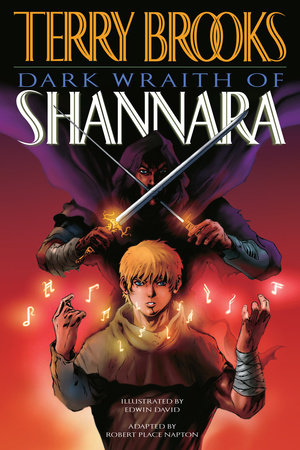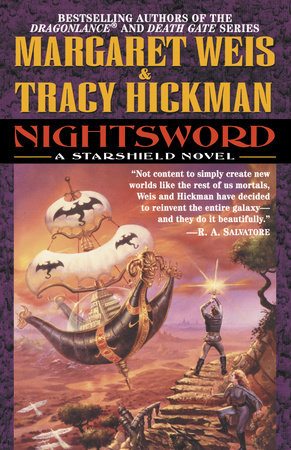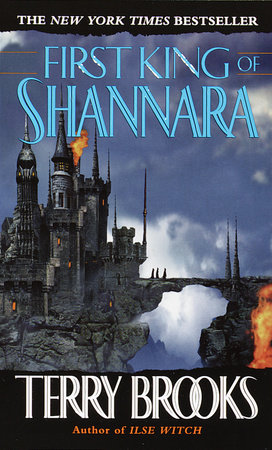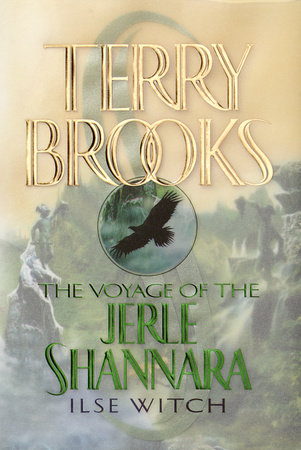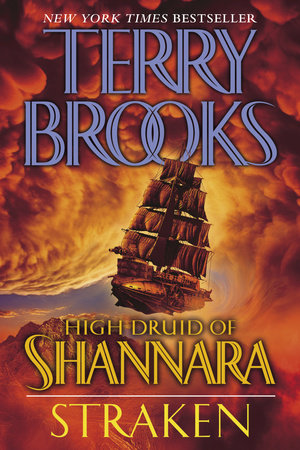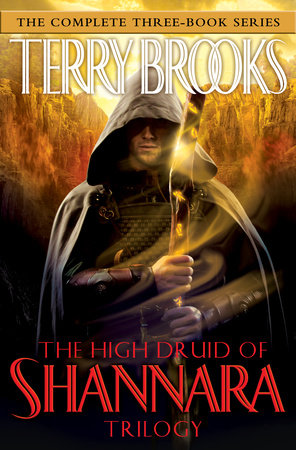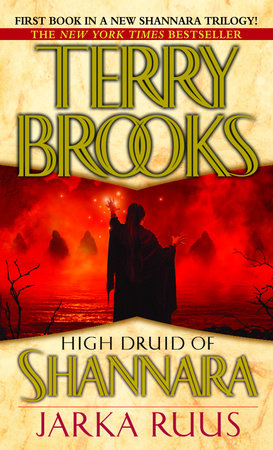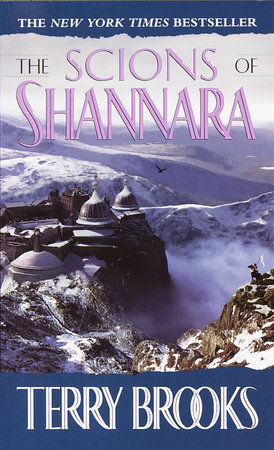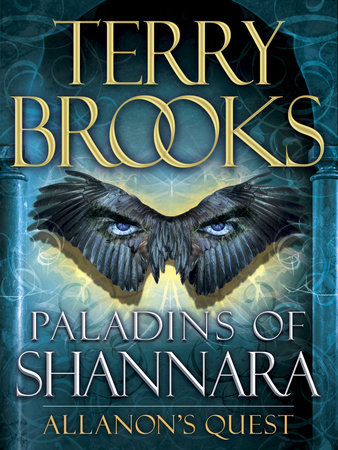Interview with Terry Brooks author of The Elves of Cintra
Question: Publication of this novel, the second in the Genesis of Shannara trilogy, marks the 30th year of your writing career. Congratulations!
Terry Brooks: Many thanks. It’s hard for me to believe that anyone still reads me after this much time. I always said that what I wanted most out of a writing career was longevity.
Q: You still seem to stretch, to challenge yourself as a writer, with each new novel. A lot of writers in your situation would be content to coast along. How do you keep your passion for writing alive?
TB: It’s tempting to coast now and then. Easier to just cut a few corners. But the problem is that it’s nowhere as interesting as trying new things. I think I am lucky enough to be able to work in the worlds I’ve already created. No one is telling me not to go back for another visit. But writing requires passion, and passion requires involvement. So I look for stories about which I feel strongly enough that I am not going to lose interest three quarters of the way through. Readers have a right to expect your best each time out, and I’m not going to disappoint them.
Q: In the acknowledgments to The Elves of Cintra, you write about your friends and family giving you “the space and time to be as strange and disconnected from reality as I needed to be.” I was struck by that phrase . . . Why is it important to you as a fantasy writer to have this freedom, and what does it mean exactly to be “strange and disconnected from reality”?
TB: That’s a little misleading, I suppose. It makes me sound mental. But what I meant was that in order to write in the realm of the fantastic, you have to be able to let go of the real world. Not entirely, of course, but enough so that you can imagine things that transcend what we know. You have to get into the imaginary and then explore what having the imaginary become real means. For example, if the world really were ending, as it is in Armageddon’s Children and Elves of Cintra, how would that happen? How would it affect the population? What if demons were real and driving this cataclysm? You get the point. Readers of fantasy expect you to take them to new places. In order to do that, you have to go there first.
Q: Genesis of Shannara joins the Shannara universe to that of your Knight of the Word series and shows how the world of the Shannara books came to be, born out of the ruins of our world, in a near future where technology has run amuck to produce the cataclysmic social and environmental conditions that allow magic to return to prominence. It seems there is a cyclical process at work in your fictional universe, where magic gives way to science, which then gives way to magic again. Is this vision based on the naturally recurring cycles of our world and the ways in which technology has put the environment at risk?
TB: It is. In part, at least. Everything we know comes and goes in cycles. From the mundane to the extraordinary, this is the nature of our world and of the human condition. But my examination of science as a force for good and evil is one grounded in the present, where it is clear that our choices in the uses of science may well affect the way the world turns out. Certainly concern for the environment is high on my list of issues. But science pervades our lives in so many ways, and we are often incautious with its uses and dismissive of its affects. Who we are and how we live in the present is directly connected to the past, and you have to take a close look at the lessons we once thought we would never forget, but somehow have.
Q: Is the human threat to the environment, through global warming, pollution, and so on, overblown in your opinion?
TB: Not in my opinion. If anything, we aren’t paying enough attention. We aren’t doing enough as individuals to help protect our world and our lives. These issues seem so overwhelming to us. What can we do, we who are just trying to get by ourselves? But we need to do something. If we all do just a little, it can make a difference. Being a part of some effort to help make the world better is a good start.
Q: Is this trilogy more difficult to write than those preceding it? In many ways, it’s your most ambitious work so far. Not only are you juggling multiple storylines, but you’ve got to be faithful to the whole “future history” of your already published Shannara books . . .
TB: Sure, it’s tough. I’m looking at the three books contained in the current series, but beyond that I have a thousand years of pre-history in the Shannara world to span before reaching the First Council of Druids and the beginning of the new world in which magic is dominant. How am I going to cover all that? Beats me, but I’m working on it. In part, the trick is to concentrate on taking small steps so you don’t get overwhelmed.
Q: I can’t understand why Hollywood has never adopted the Shannara books, or indeed the Knight of the Word books. Have your books been optioned? Is there any chance of a movie?
TB: I have sold options to various movie studios on both Shannara and Magic Kingdom over the years, as early as the late seventies. But the experiences were not pleasant, and after awhile, I withdrew the invitation to even talk about it. That changed with the production of Harry Potter and Lord of the Rings, both of which demonstrated in no uncertain terms how far special effects had advanced and how good movies could be made based on solid story telling. So earlier this year I optioned the Shannara series to Warner Brothers. There is reason to think that they intend to do something important with it. But, as usual, it’s wait and see time.
Q: The King of the Silver River, who was present in the very first Shannara book, plays an important role in this novel too. Who–or what–is this enigmatic figure? What is his connection to the Word?
TB: Now you’re putting me on the spot. The history of the King of the Silver River is covered extensively in several other Shannara books, in particular Druid of Shannara. We don’t know everything about him, as readers. We know he is a faerie creature, that he is almost as old as the Word and something of a contemporary. But we never see the Word, and only a few ever see the King of the Silver River. Does he act at the behest of the Word? Possibly, but also he appears to act on his own. Readers will have to draw their own conclusions.
Q: Is the Word related to the Christian concept of the logos? “In the beginning was the word . . .”
TB: The Word and the Void are meant to be polar opposites–personifications of good and evil that lack a substantive identity and take many different forms. They are meant to be all encompassing, much like good and evil in our own world. It was never my intention to be too specific about origins. That’s territory that belongs to the readers. I have a strong commitment to engaging readers in the storytelling process.
Q: Knights of the word like Logan Tom and Angel Perez serve a mystical woman known as the Lady. Is there a relationship between the Lady and the King of the Silver River?
TB: Not that we know of. Both have a connection to the Word. The Lady is the Voice of the Word. Beyond that, we don’t know a whole lot about her. She never interacts with the King of the Silver River. At least, not yet.
Q: In mainstream novels, writers choose the names of characters and places from already existing sources. As a fantasy writer, you have to make up your own. Do the names just come to you, or do you have a way of generating them?
TB: I take my names, quite literally, from all over. I keep a running list of interesting names, ones I gather in my travels and from my readings. Sometimes I just make them up, but often they have another source. When I put a novel together, I work out the names from my list. Some of them I use as I find them. Some are hybrids. All are chosen to suggest something about the character, creature, or place. I work hard to make my names fit because readers need that grounding.
Q: With the next volume, the Genesis trilogy concludes. Do you have a title yet? And will that book be the final novel that you write about the world of Shannara?
TB: I don’t have a title, even though I am almost three-quarters of the way done with the book. I have a working title, but I probably won’t keep it. It will not be the last book I write in the Shannara world, but it will be the last for a while. Next up is a book from Magic Kingdom.
Q: After thirty years, do you have any unmet goals as a writer?
TB: Oh, sure. If I didn’t have fresh goals, I would find it pretty hard to keep going. But I always have new ideas to work with. I have been writing now through four decades. It think I will try for five. How about that?
